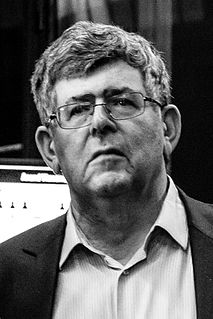A Quote by James Franco
I loved the book [The Adderall Diaries] I optioned it, I think some years ago. But there's a lot of different threads in the book. It starts off as one thing, where he's trying to cover this murder trial, and then his own life starts to impinge on that, so it becomes something else. I found that fascinating.
Related Quotes
When I was 10 years old, I loved - I loved books, and I used to haunt the secondhand bookshop. And I found a little book I could just afford, and I bought it, and I took it home. And I climbed up my favorite tree, and I read that book from cover to cover. And that was Tarzan of the Apes. I immediately fell in love with Tarzan.
What I do usually is read the book first, for pleasure, to see if my brain starts connecting with it, as a movie. And then, if I say yes, I read it again, only this time I take a pen and, inside the book, I say, "Okay, this is a scene. I don't need this. I'm going to try this. I'm not going to take this." And then, I use that book like a bible and each chapter heading, I write a menu of what's in that chapter, in case I ever need to reference it. And then, I start to outline and write it. I get in there and it starts to evolve, based on having re-read it again.
The challenge is always to find the good place to end the book. The rule I follow with myself is that every book should end where the next book would logically begin. I know that some readers wish that literally all of the threads would be neatly tied off and snipped, but life just doesn't work that way.
Kevin Lee is really tough. He has some flaws in his game that we can work with. I think he mixes up his boxing and his wrestling really well. He takes you down, he unleashes some strong ground and pound. However, he usually starts a round strong and then starts to fade. In five rounds, I think I can take an advantage of that.
The book is not a cut-and-paste job. Yeah, I have a blog, but the material in the book is all new. The blog deals with my life now, whereas as the book starts a few years before my birth until right about the end of junior high. And yes, I am contractually obliged to mention this as much as possible (each time I do, HarperCollins sends me a free pizza).
With all due respect to 'The Vampire Diaries,' doing the same thing, over and over again, for essentially five years straight, it really becomes laborious and tedious, and it becomes a job. You obviously find gratification in acting, but you're playing the same character. No matter how compelling it is, it starts feeling pretty monotonous.
Often you will find the opposite situation. The author seems to have interesting ideas, but he is not able to illustrate them with decent examples. If a grandmaster is commenting on one of his own games, then there is usually not any problem: his general thoughts are closely tied up with what is happening on the board. But as soon as he starts writing an article or book on a different theme the difficulties begin, as he may not have suitable material to hand.
Wildlife was the only thing we've written together with Paul Dano. It's based on a book by this author Richard Ford, who just published a memoir about his family that's really wonderful. Paul fell in love with his book, and we optioned it ourselves, and he took a first pass at writing it. He asked me for notes, and then our note session devolved into an argument really quickly.
Life as such has to be taken as a cosmic joke - and then suddenly you relax because there is nothing to be tense about. And in that very relaxation something starts changing in you - a radical change, a transformation - and the small things of life starts having new meaning, new significance. One learns only one thing, how to rejoice in life.


































